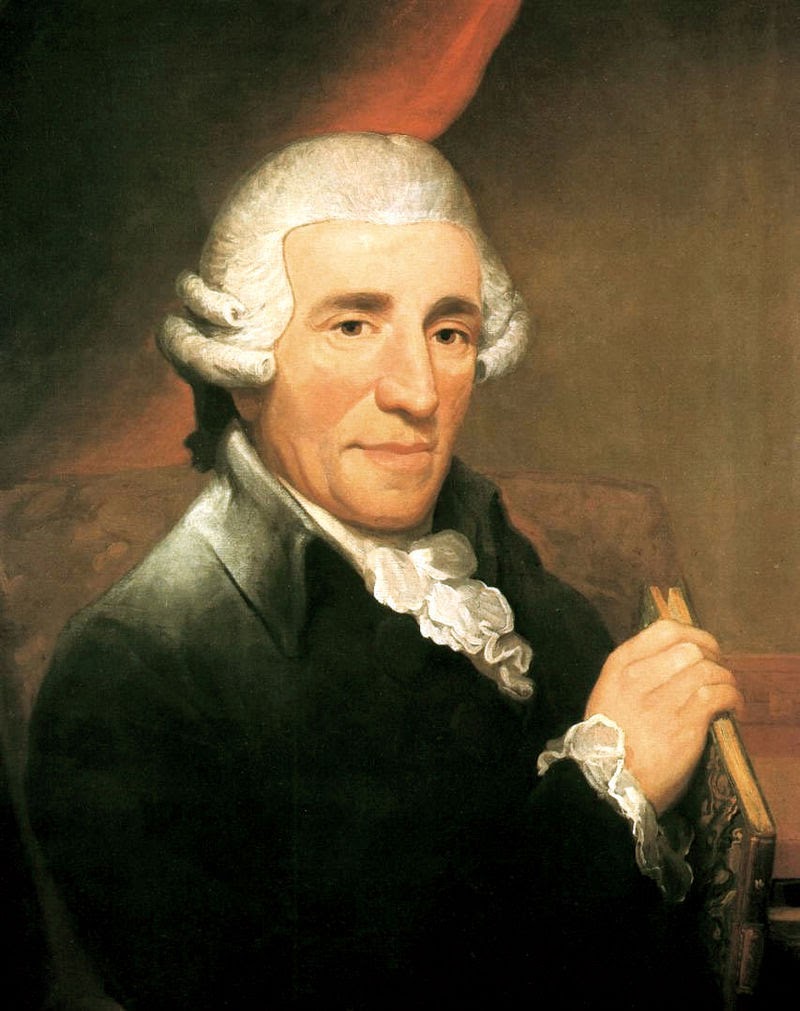| Edit | Map | Home | New Post | New Gallery |
Support
|
 | |
Franz Joseph Haydn (German: Joseph Haydn; March 31, 1732, Rohrau, Archduchy of Austria - May 31, 1809, Vienna, Austrian Empire) is an Austrian composer, a representative of the Viennese classical school, one of the founders of such musical genres as the symphony and the string quartet. Haydn's music is characterized by the breadth of folklore connections. He is the author of 104 symphonies, 83 quartets, 52 piano sonatas, oratorios ("Creation of the World", 1798; "Seasons", 1801), 14 masses, 24 operas. The author of the music for the anthem of Austria-Hungary, which later became the basis of the anthem of Germany. The creative path of J. Haydn - the great Austrian composer, an older contemporary of V. A. Mozart and L. Beethoven - lasted about fifty years and covered all stages of the development of the Viennese classical school - from its birth in the 1760s to the flowering of Beethoven's work at the beginning of the 19th century. Together with Mozart and Beethoven, Haydn formed and brought to a rare level of perfection the style of the so-called Viennese classicism. The beginnings of this style lie in the Baroque era, and its later period, expressed in the works of Haydn, Mozart and Beethoven, leads directly to the era of Romanticism. Interesting Facts It is generally accepted that Joseph Haydn's birthday is March 31. However, another date was indicated in his certificate - April 1. If the composer's diaries are to be believed, such a minor change was made in order not to celebrate his holiday on "Fool's Day". Little Joseph was so talented that he already knew how to play the drums at the age of 6! When the drummer who was supposed to take part in the Holy Week procession suddenly died, Haydn was asked to replace him. Since the future composer was short, due to the peculiarities of his age, a hunchback walked in front of him, who had a drum tied to his back, and Joseph could play the instrument calmly. The rare drum still exists today. It is located in the Hainburg church. The young Haydn's singing voice was so impressive that he was asked to join the choir school of St. Stephen's Cathedral in Vienna when the boy was only five years old. The choirmaster of St. Stephen's Cathedral proposed to subject Haydn to a certain operation to prevent the voice from breaking, but fortunately the father of the future composer interceded and prevented this. When the composer's mother died at the age of 47, his father quickly married a young maid who was 19 years old. The difference between the ages of Haydn and his stepmother was only 3 years, and the "son" turned out to be older. Haydn loved a girl who for some reason decided that life in a monastery was better than family life. Then the musical genius called his beloved's older sister, Anna Maria, to marry him. But this thoughtless decision did not lead to anything good. The wife turned out to be grumpy and does not understand her husband's musical interests. Haydn wrote that Anna Maria used his sheet music manuscripts as kitchen utensils. In Haydn's biography, there is an interesting legend about the name of the F-moll String Quartet "Razor". One morning, Haydn was shaving with a blunt razor, and when the patient burst in, he shouted that if he were given a normal razor now, he would give his great work for it. At that moment, John Bland was nearby, a man who wants to publish the composer's manuscripts, which no one has seen before. After hearing this, the publisher handed his English steel razors to the composer without hesitation. Haydn kept his word and presented the new work to the guest. Yes, the String Quartet got such an unusual name. It is known that Haydn had a very strong friendship with Mozart. Mozart respected and honored his friend very much. And if Haydn criticized the works of Amadeus or gave some advice, Mozart always listened, Joseph's opinion was always in the first place for the young composer. Despite their peculiar temperaments and age difference, the friends had no quarrels or disagreements. "Miracle" - this is the name given to symphonies No. 96 in D-dur and No. 102 in B-dur. All this because of one story that happened after the concert of this piece ended. People rushed to the stage to thank the composer and bow before him for the beautiful music. As soon as the listeners were in the front part of the hall, a chandelier fell with a crash behind them. There were no casualties - and it was a miracle. Opinions differ on the premiere of which symphony this amazing incident happened. The composer suffered from polyps in his nose for more than half of his life. This became known to the surgeon, and at the same time to Joseph's good friend John Hoenter. The doctor recommended to come to him for surgery, which Haydn initially decided to do. But, when he came to the room where the operation was to take place and saw 4 large assistant surgeons, whose task was to hold the patient during the painful procedure, the genius musician got scared, broke free and screamed loudly. In general, the idea of getting rid of polyps sank in the summer. As a child, Joseph suffered from smallpox. Haydn has a Symphony with timpani strikes or it is also called "Surprise". The history of the creation of this symphony is interesting. Joseph periodically toured London with the orchestra, and once he noticed how some of the audience fell asleep during the concert or were already having good dreams. |
Author: Sonya Version: 1 Language: English Views: 0
|
Short link: https://www.sponsorschoose.org/a164
Short link to this version: https://www.sponsorschoose.org/n190
Created by Sonya at 2023-05-30 07:14:05
Last modified by Sonya at 2023-05-30 22:02:09
|